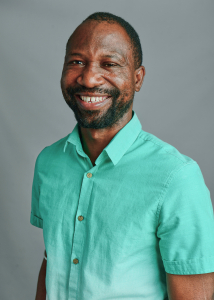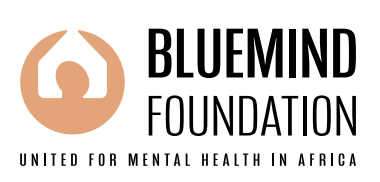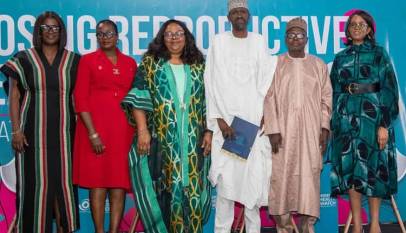OP-ED | Africa’s Recent Coups and What International Democracy Stakeholders Should Understand, By Ghadafi Saibu
Ghadafi Saibu call on international democratic stakeholders, including ECOWAS, to facilitate the institutionalization and deepening of democratic procedures beyond elections, decrying the current approach of accepting African countries’ long-term electoral autocracies (hybrid regimes) that have long packaged themselves as democracies under the guise of elections.

The recent wave of coups in Africa appeared to come as a shock to international stakeholders of democracy. What started in Mali, following antigovernment protests in August 2020, soon spread like an uncontrollable harmattan fire across other five countries in the Sahel and the Francophone Central and West Africa subregions, collapsing the regimes in place.
While these coups may mark the beginning of a worrying trend in Africa, they appear to be widely supported by the African population. This is evident in the euphoria with which commentators have greeted the fall of these regimes on traditional media and various social media platforms. However, it remains to be seen whether these military coups will fulfil the expectations of citizens, as virtually none of the region’s military coups of the past have brought benefits to the population.
Now that the dust seems to have settled, the international actors interested in Africa’s democratization should learn lessons from what has happened in order to avoid further coups in Africa. They should pay close attention to what kind of democracies they support on the continent. Currently, many African countries are long-term electoral autocracies (hybrid regimes) that have long packaged themselves as democracies under the guise of elections.
The actions or inactions of international democracy stakeholders in Africa suggest an uncompromising endorsement of these hybrid regimes rather than pushing for more complete democracies. Almost 64% of net development aid from all donors goes to countries that are not considered fully democratic, according to internationally recognized democracy indices such as the Varieties of Democracy Index. This implies that foreign aid continues to stabilize incomplete democracies.
As a result, democracy in Africa has been reduced to a cyclical event involving seemingly successful elections with all their systemic flaws. For instance, between 1990 and 2023, about 70% of regimes in Africa were either closed autocracies (17.6%) or electoral autocracies (51.7%); while 25.1 % were electoral democracies. Only 5.6% of the regimes were liberal democracies.
Thus, the most common form of government in Africa seems to be the electoral autocratic regime that holds de facto multi-party elections for the head of the executive but falls short of democratic standards due to significant irregularities and limitations on party competition. Supporting these hybrid regimes as a standard form of democracy by international stakeholders creates the impression that a functioning democracy is in place. In reality, it is not so.
Their hallmark is a lack of vertical and horizontal democratic accountability and gross misappropriation of public funds and resources. Citizens vote in the expectation that elected leaders will deliver on their expectations. Yet, because of the inherent institutional weakness and incoherence of electoral autocracies, nothing obligates the leaders to deliver or prevent them from abusing power. Thus, many African governments fail to deliver much-needed public goods for their citizens.
The crux of the matter now is that these regimes validate themselves as democracies through seemingly democratic elections. Citizens, who are suffering from the ineptitude of their government, increasingly doubt this democratic idea. Its rejection and the tolerance of other forms of government, like military rule, are becoming increasingly popular.
The coups were supported and celebrated by citizens across Africa, not because African citizens do not like democracy. But because they are dissatisfied with the way democracy has been working – or not working – in their countries.
Another key point concerns unjust colonial and post-colonial policy agreements between African leaders and former colonizers. These agreements fuel sentiment and increase the potential for coups. This explains the anti-colonial sentiment against France in the recent coups. For instance, citizens resent unfair agreements with France, such as the Air France monopoly in Francophone countries, biased military cooperation and the dominance of French companies in the uranium mines.
This has been amplified by the world’s opposing superpowers to leverage competitive advantage and establish dominance in the sub-region. Russia, for example, allegedly used disinformation strategies in African countries to whip up sentiments in favor of anti-democratic actors in the sub-region. Military juntas in these countries often strategically refer to Russia. Yet, Russia’s role is much more rhetorical in the current geopolitical space of these countries than action on the ground.
In sum, democratic stakeholders, including the Economic Community of West African States (ECOWAS), should facilitate the institutionalization and deepening of democratic procedures beyond elections. The current approach to accepting hybrid regimes as a valid form of democracy by international stakeholders suggests that electoral autocracies meet liberal norms.
They should, however, rather be considered a fragile stage of democracy, and further steps towards democratization should be encouraged. Moreover, unjust colonial and post-colonial policy agreements relating to the exploitation of natural resources must also be addressed!
This article originally appeared in the Current Column of the German Institute of Development and Sustainability (IDOS), which comments every Monday on the latest issues and trends of international development policy. Ghadafi Saibu (PhD) is a researcher at IDOS in the research program “Transformation of political (dis)order”. He is a political scientist and is currently working on topics such as social cohesion, democratization, autocratization, social media mis(dis)information, electoral violence and civil war.
















